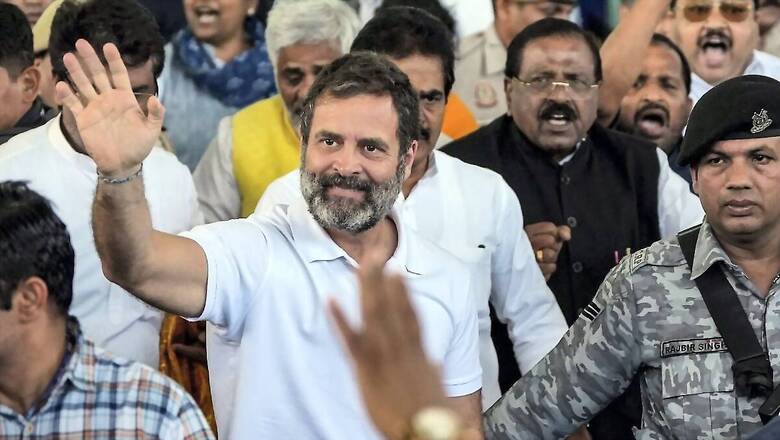Rahul Gandhi Convicted in Defamation Case: What’s Next for Cong Leader | News18 Explores His Options

views
The sword of disqualification as an MP hangs over senior Congress leader Rahul Gandhi after a Gujarat court sentenced him to two years in jail in a 2019 defamation case.
Former Gujarat minister and BJP MLA Purnesh Modi had filed a defamation complaint against Gandhi for his alleged remark – ‘How come all thieves have Modi as a common surname’ – he delivered in 2019 during an election rally.
While the charges were framed against him by the chief judicial magistrate, the former Congress president had claimed a trial in the case and pleaded ‘not guilty’.
CNN-News18 spoke to legal experts to know what this means for the Congress leader. Amit Sharma, who represents the Election Commission of India in various cases, shared his legal opinion. “According to Section 8(3) of the Representation of the People’s Act, a person stands convicted as soon as a court pronounces a sentence of two years or more,” he said.
“The only option available to such a convicted person is to file an appeal before a higher court and secure a stay on the conviction,” he added.
Advocate Ashish Dixit, who practises at the Delhi High Court and Supreme Court, too, had a similar view while adding that Gandhi should immediately seek a stay on his conviction; else, he will be in an uncertain position with regard to disqualification as the three months’ window – available in Section 8(4) of the Representation of the People’s Act – was struck down by the Supreme Court in its Lily Thomas judgment.
“The conviction and sentence for two years creates disqualification under the provisions of the Representation of the People’s Act, including Section 8. The convict is disqualified from the day of conviction and, unless the conviction is stayed by an appellate court, he may lose his seat and right to contest the election for six years,” Dixit said.
According to the Criminal Procedure Code (CrPC), the stay on conviction can only be sought from a higher court, as the conviction order can be challenged before a higher court where the appeal lies.
Gandhi will now have to knock the doors of a sessions court by way of an appeal since these are the orders of a chief judicial magistrate in Surat. He will also have to file an application under Section 389 of the CrPC, along with his appeal seeking suspension of sentence and conviction. Section 389 provides for the suspension of sentence, pending appeal and release of appellant on bail.
Senior advocate Mahesh Jethmalani said Gandhi was disqualified at the moment of conviction because the SC’s Lily Thomas judgment struck down the three months’ grace period.
Read all the Latest Politics News here


















Comments
0 comment